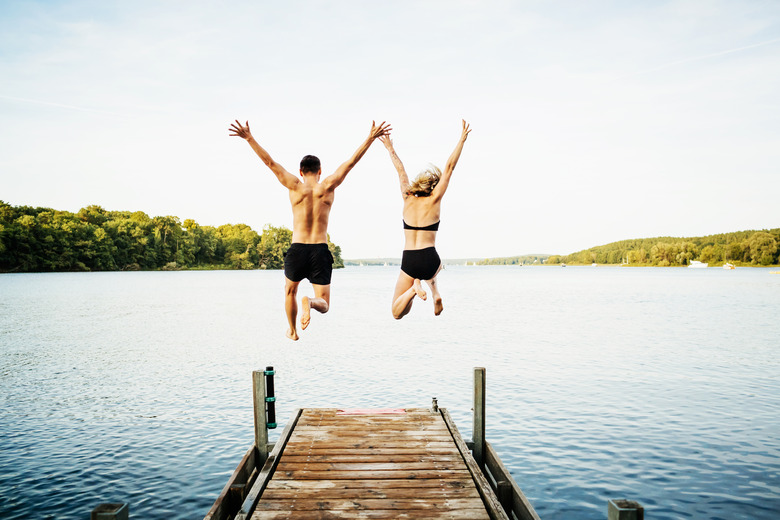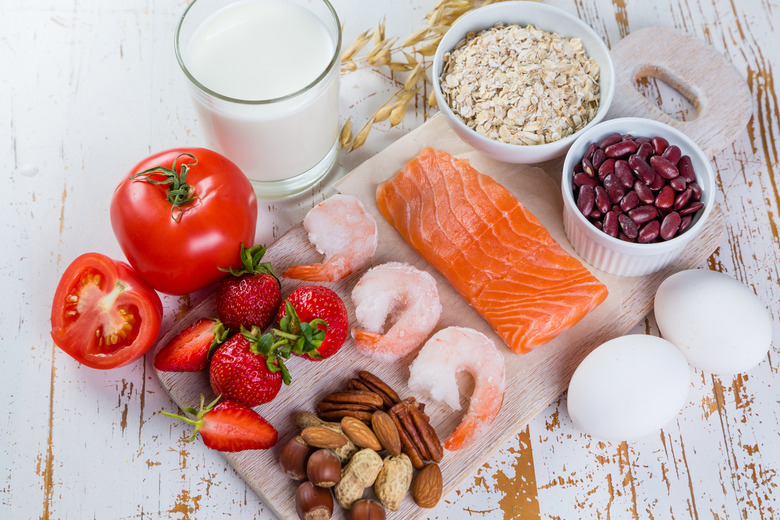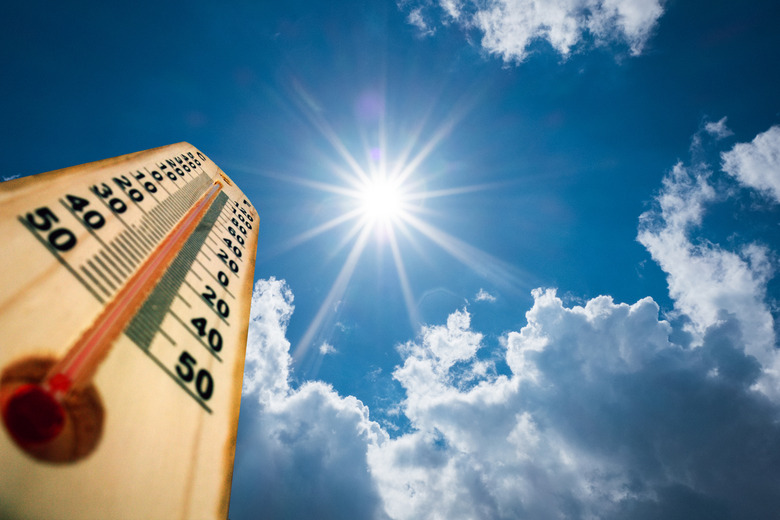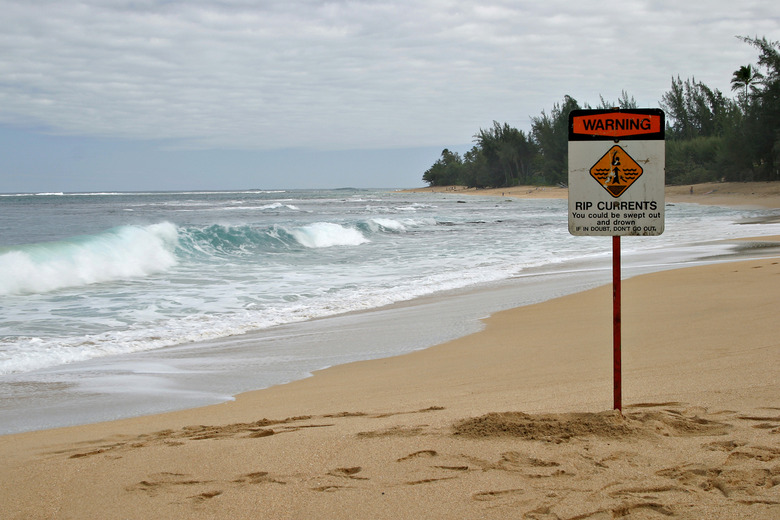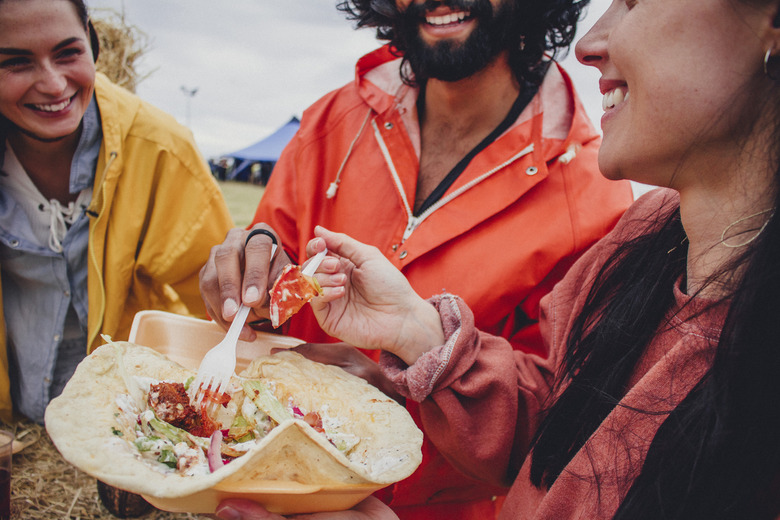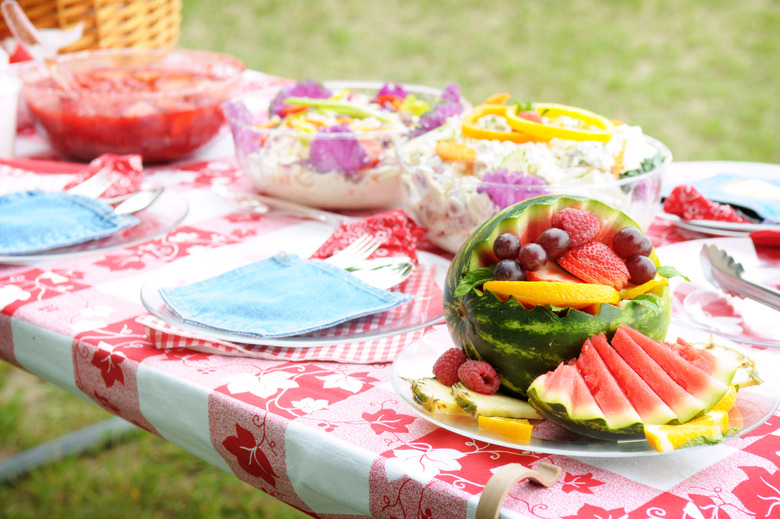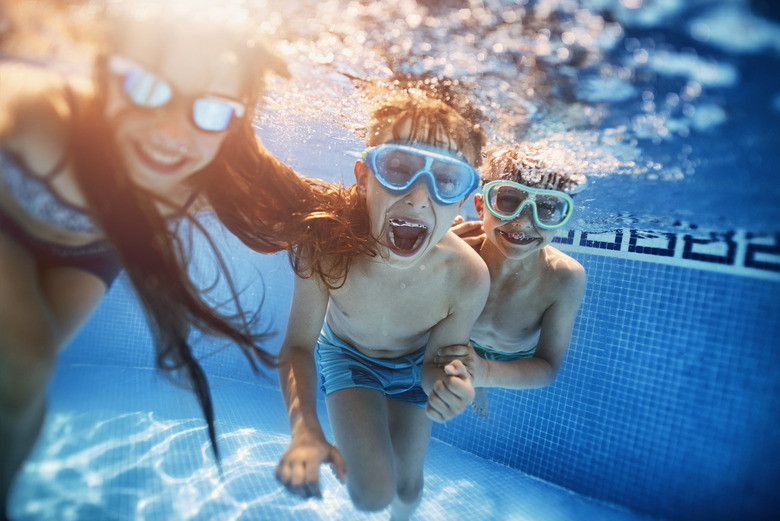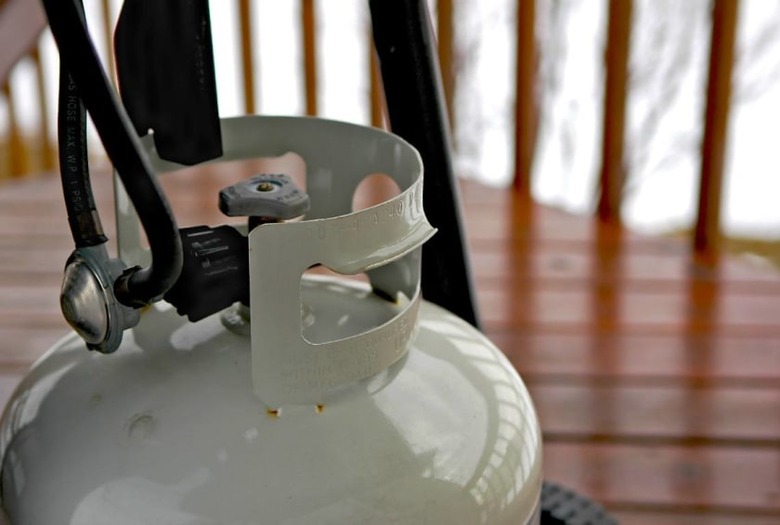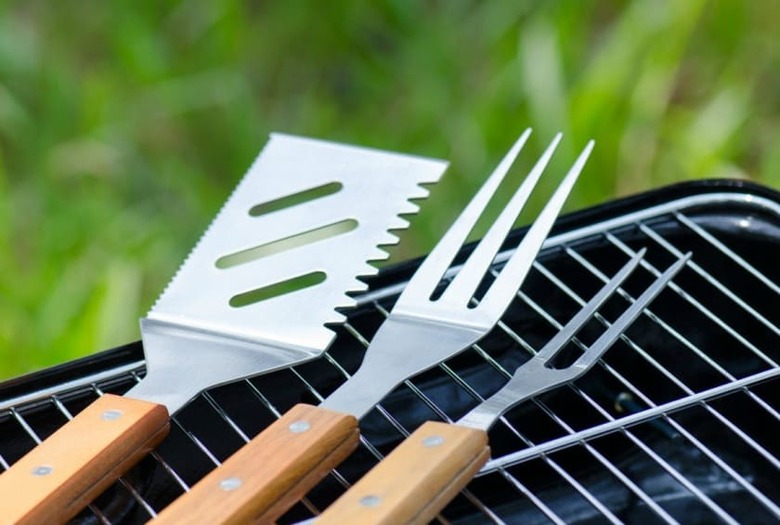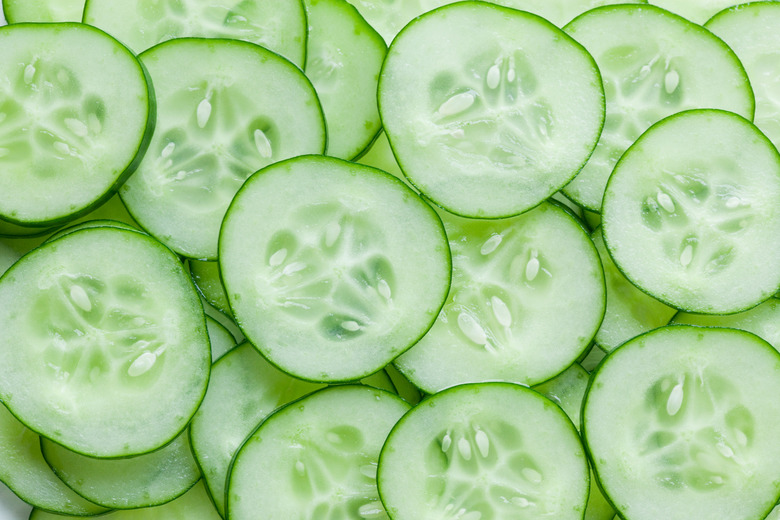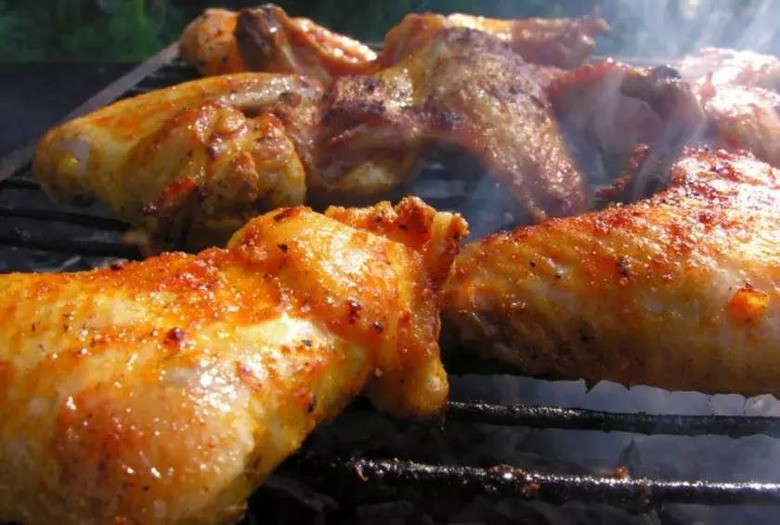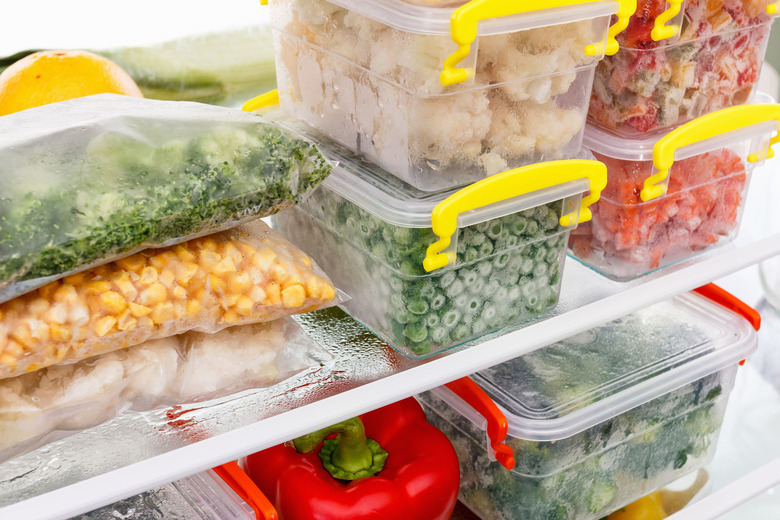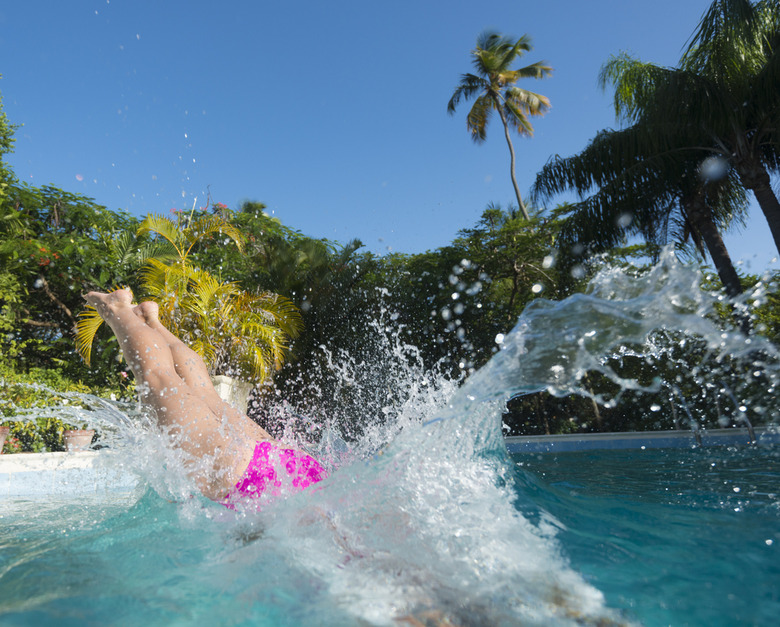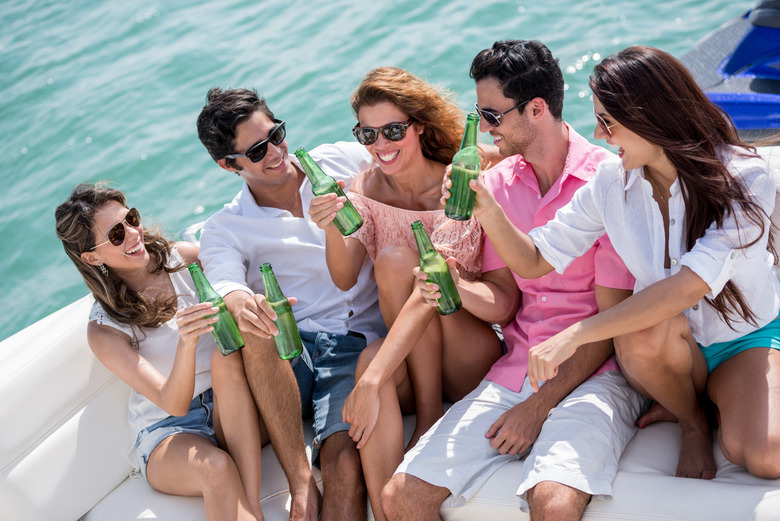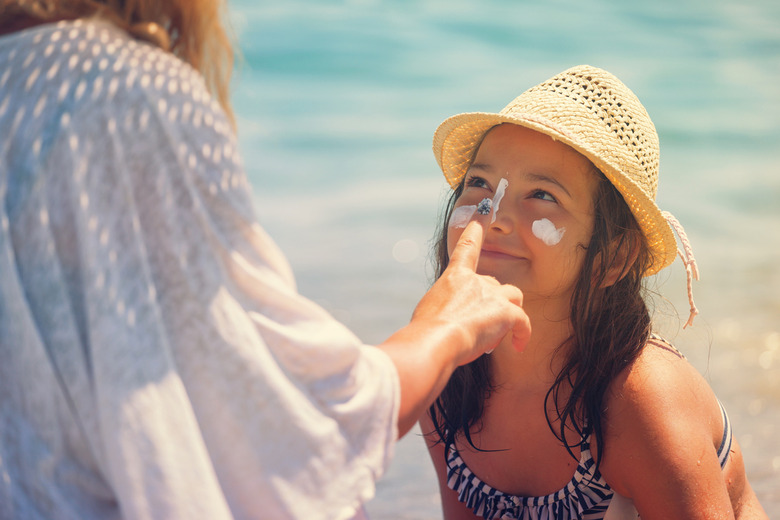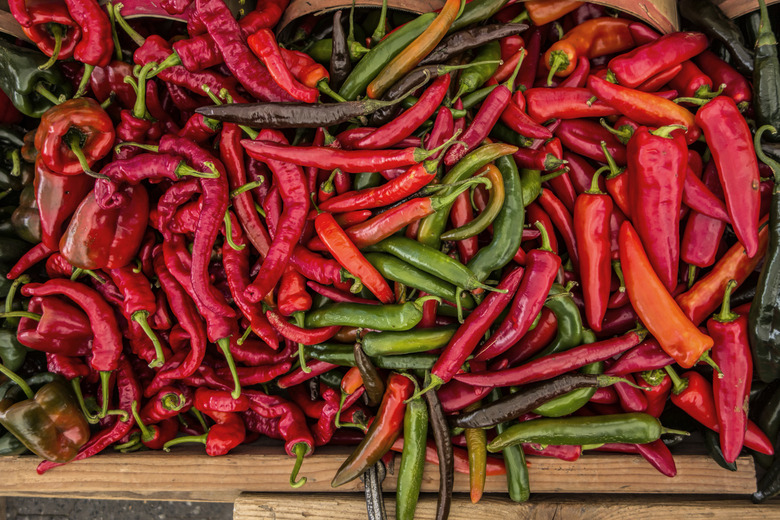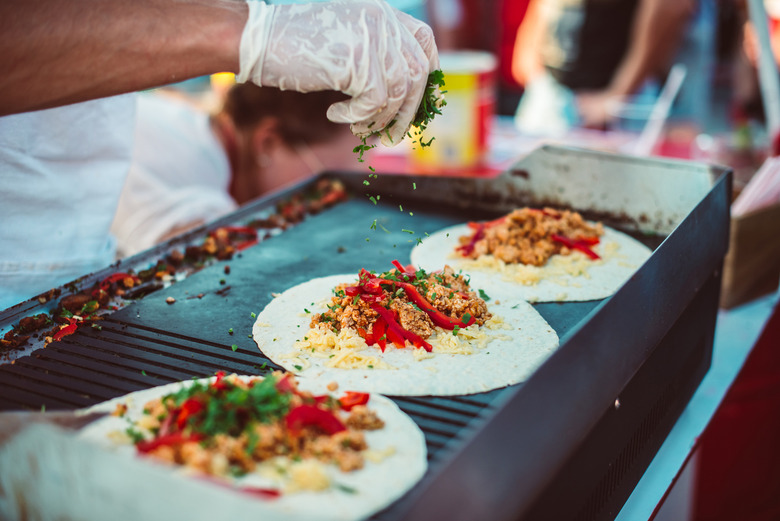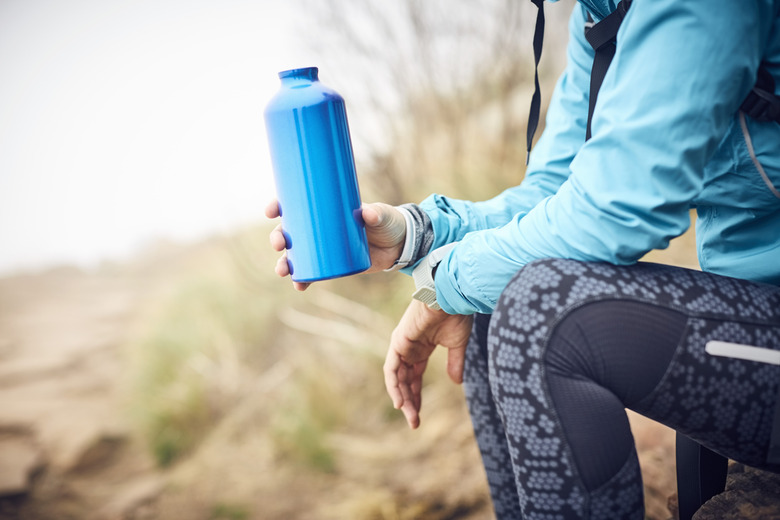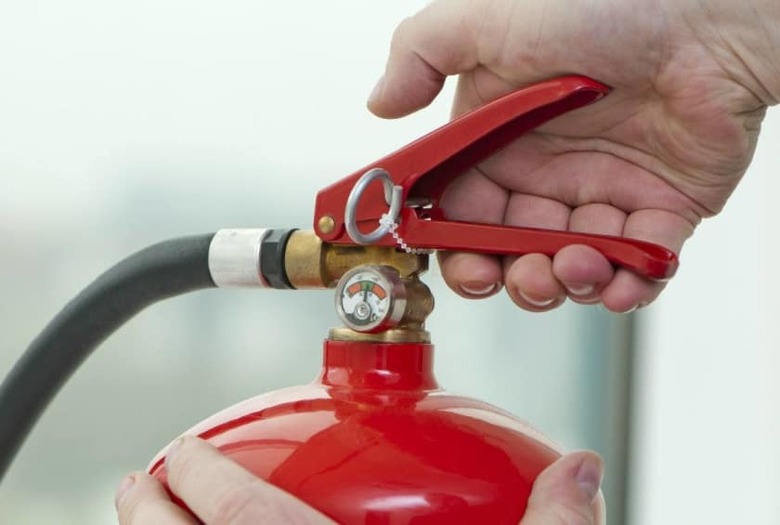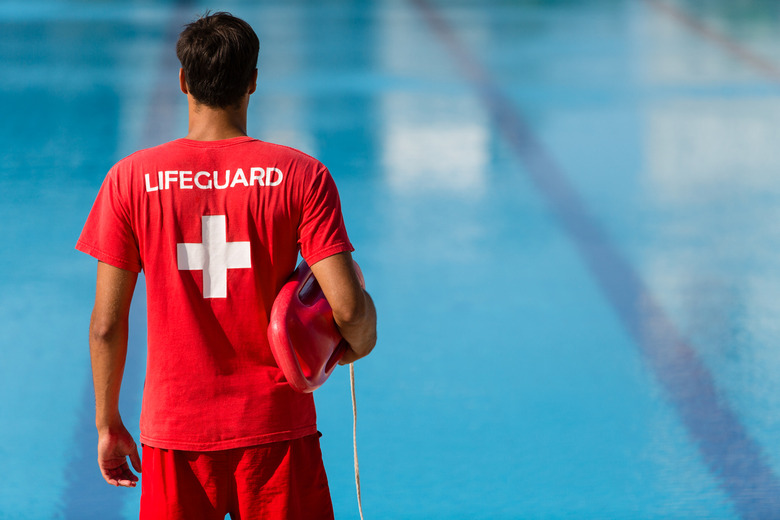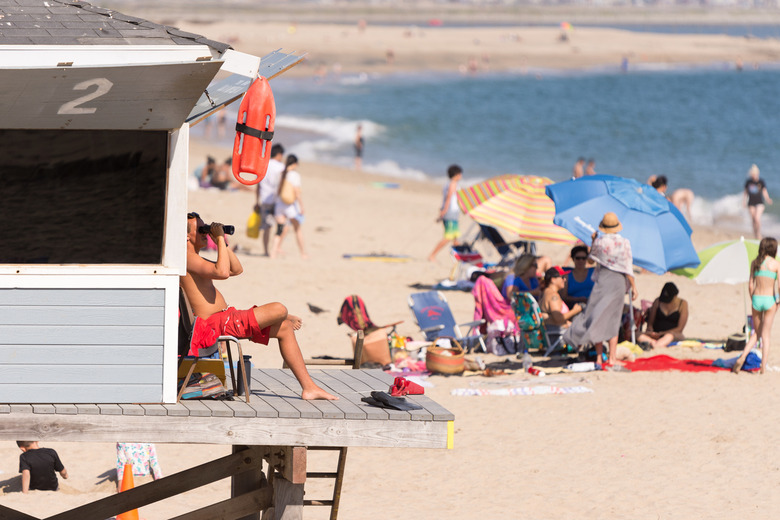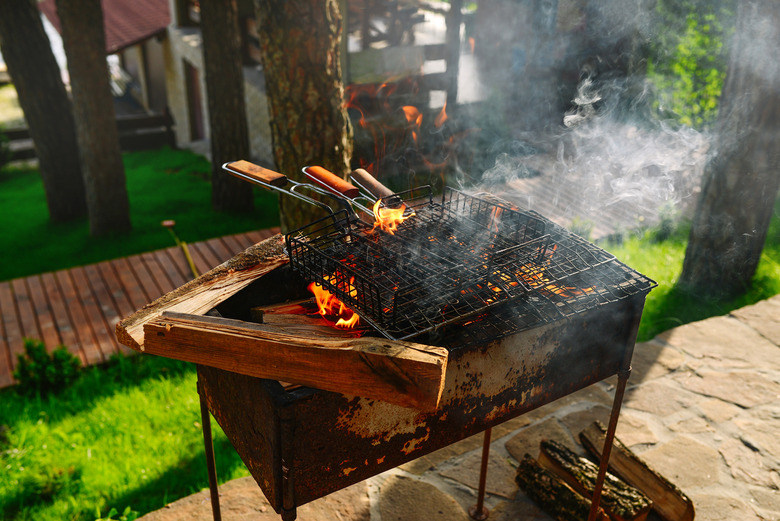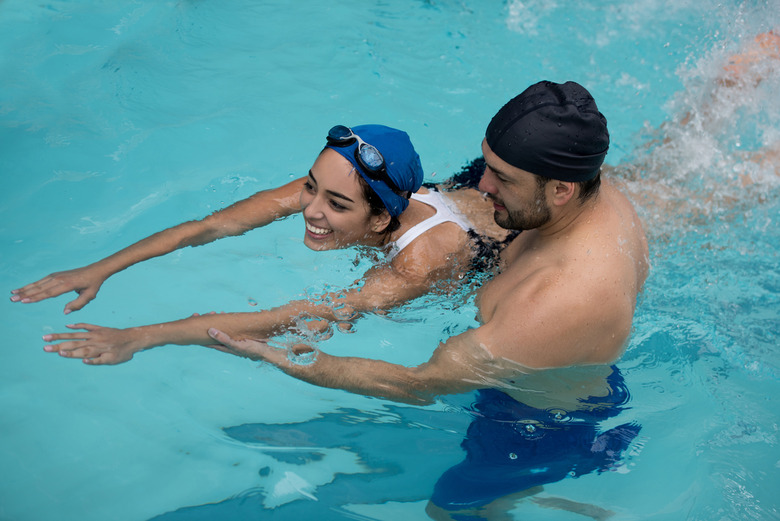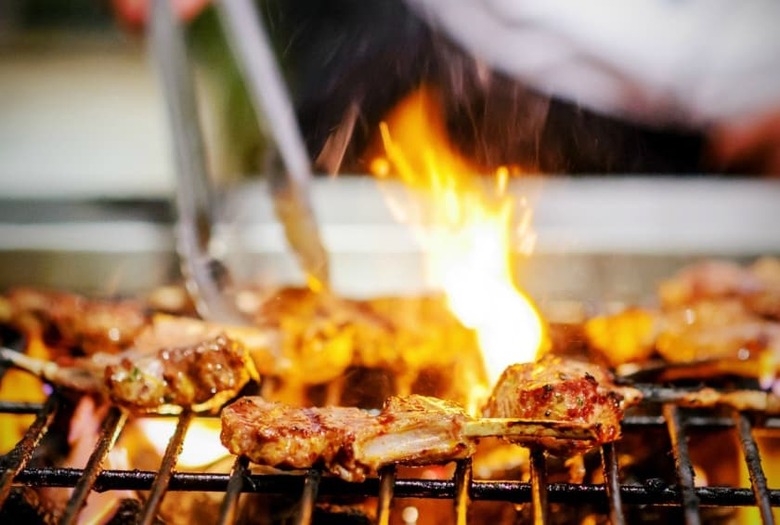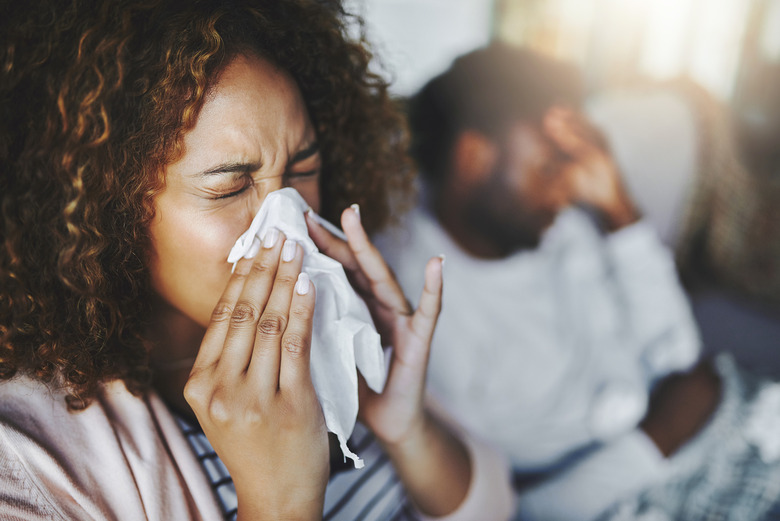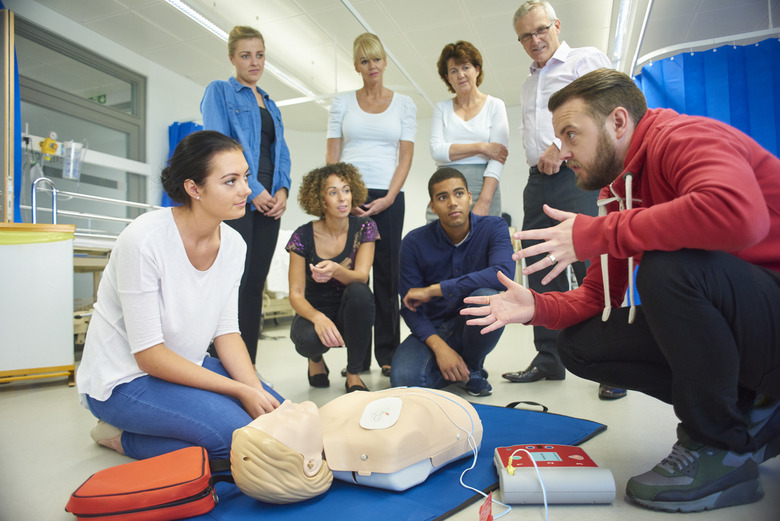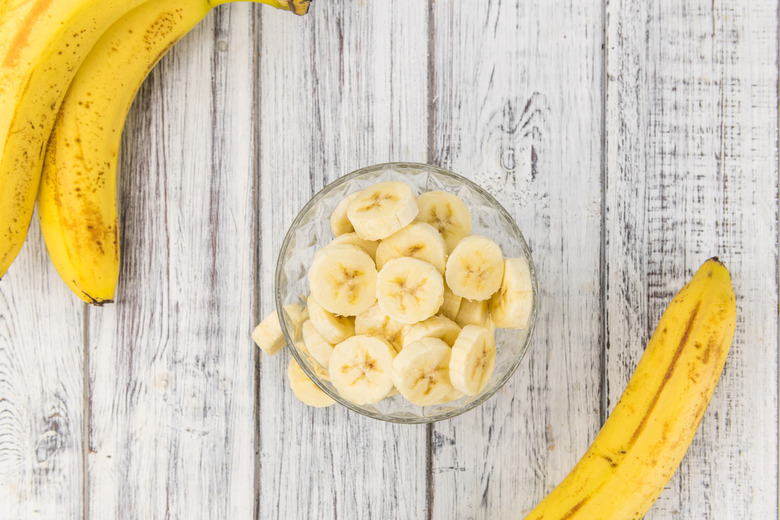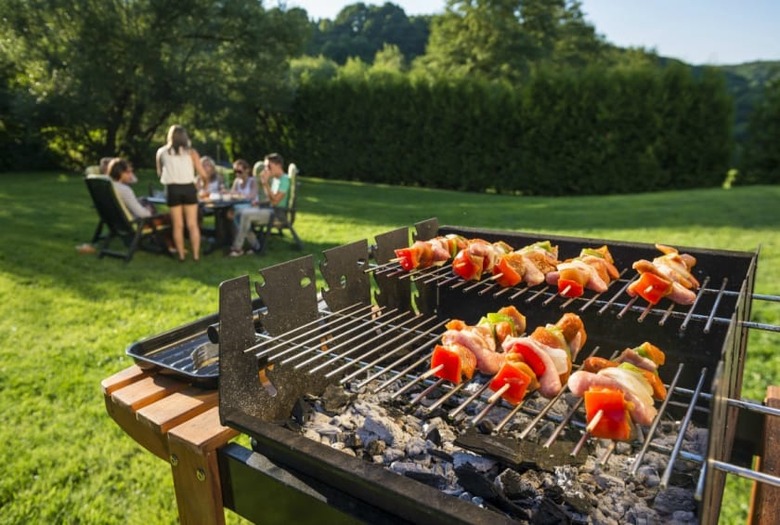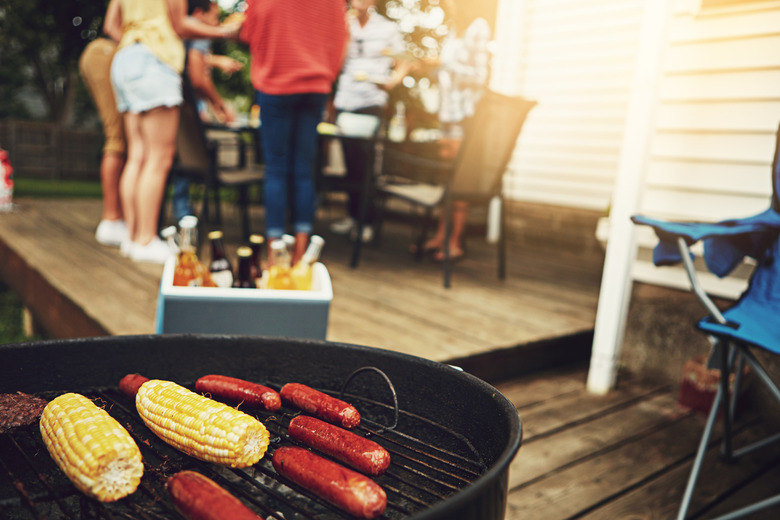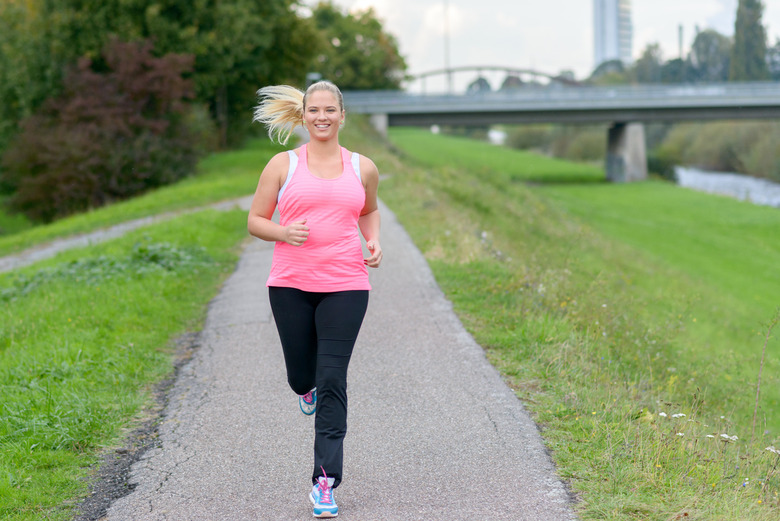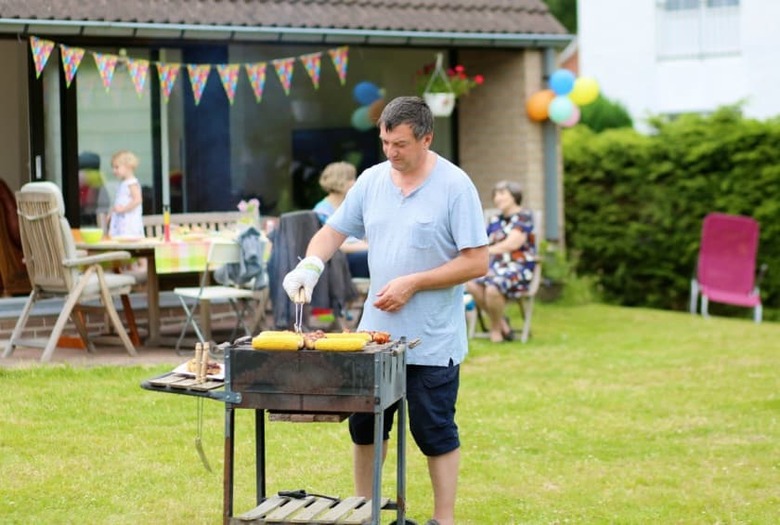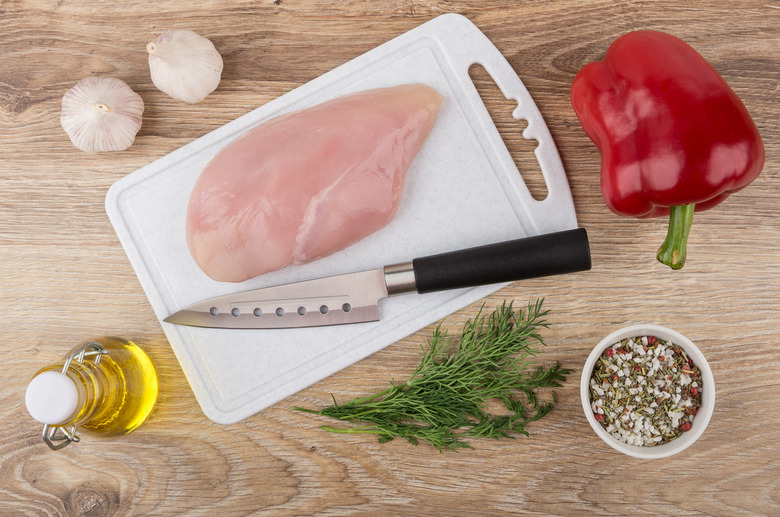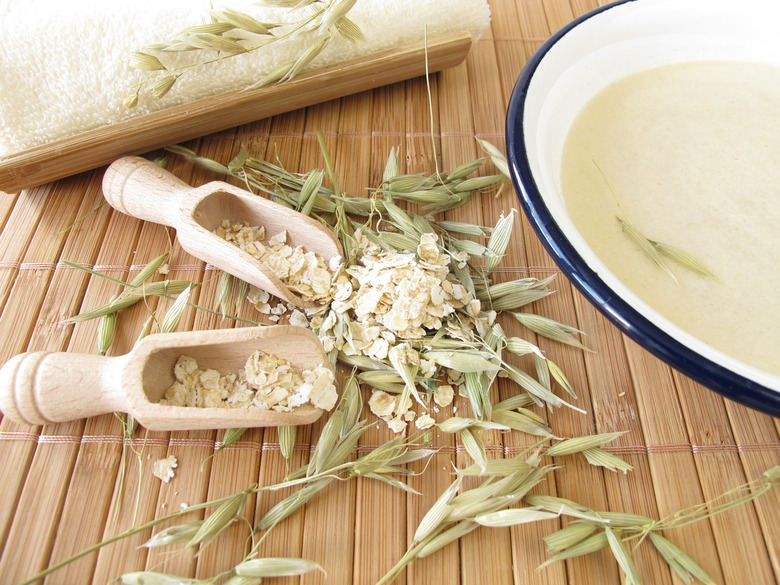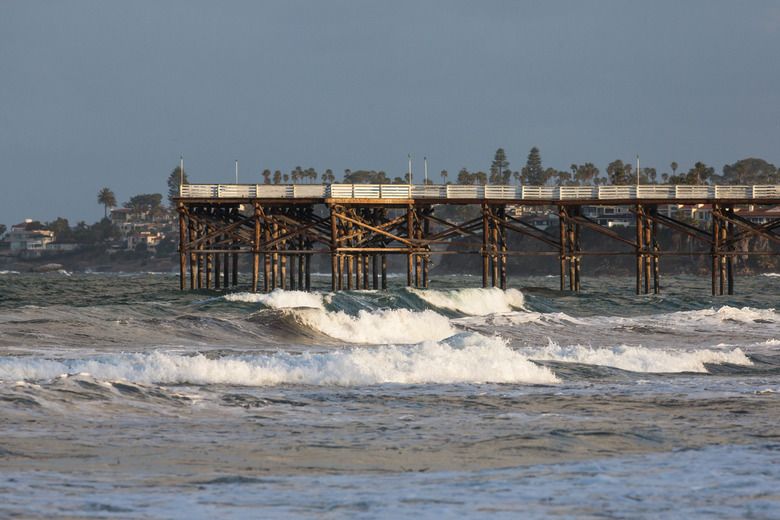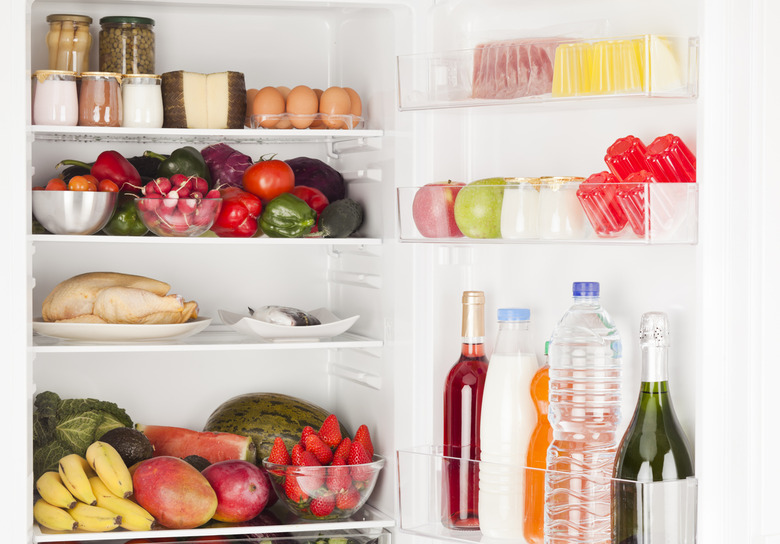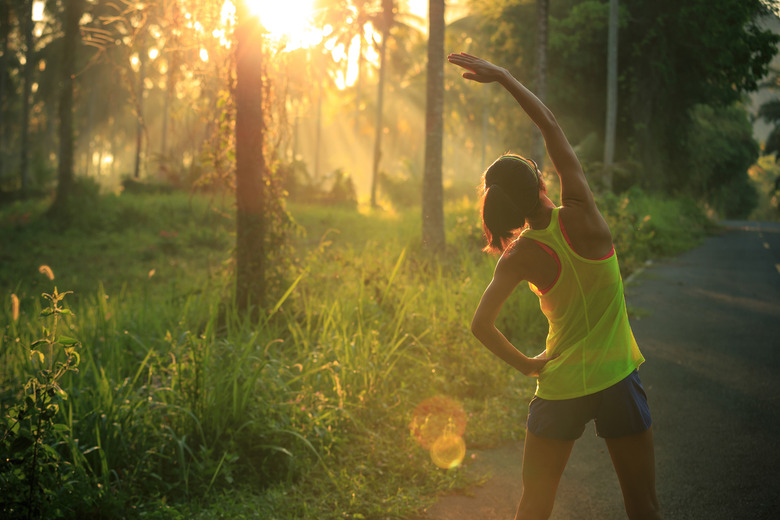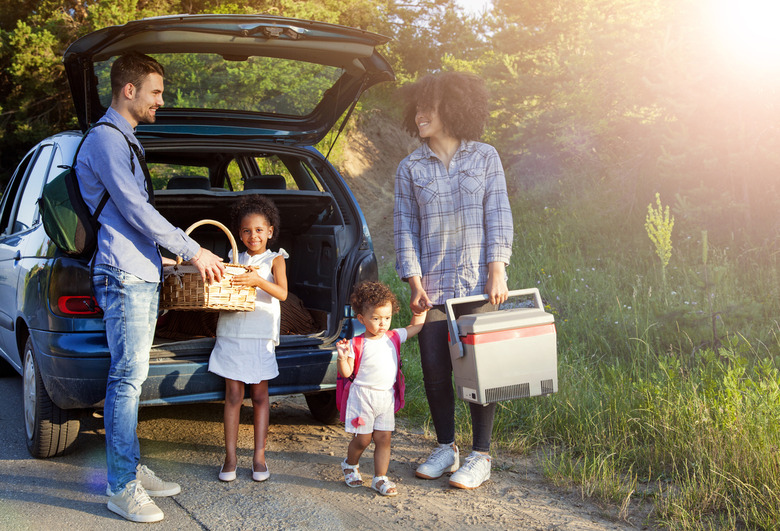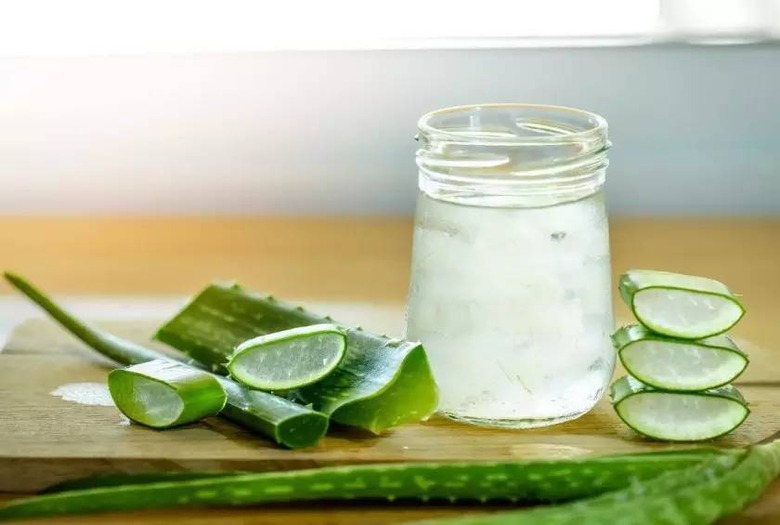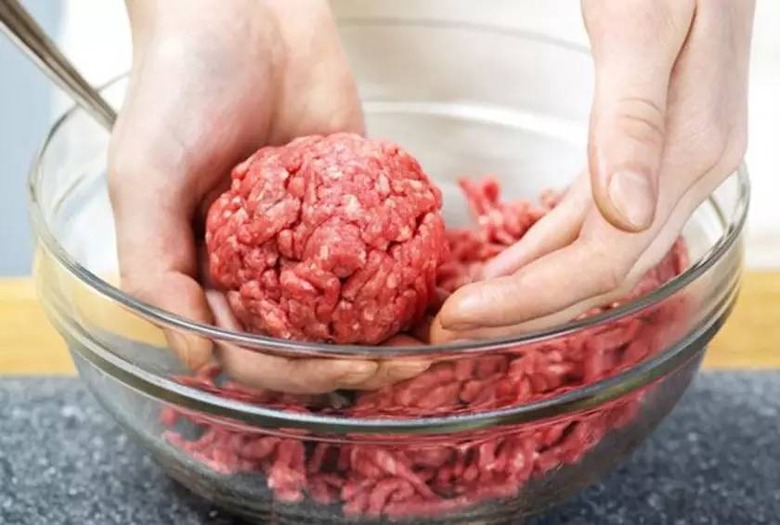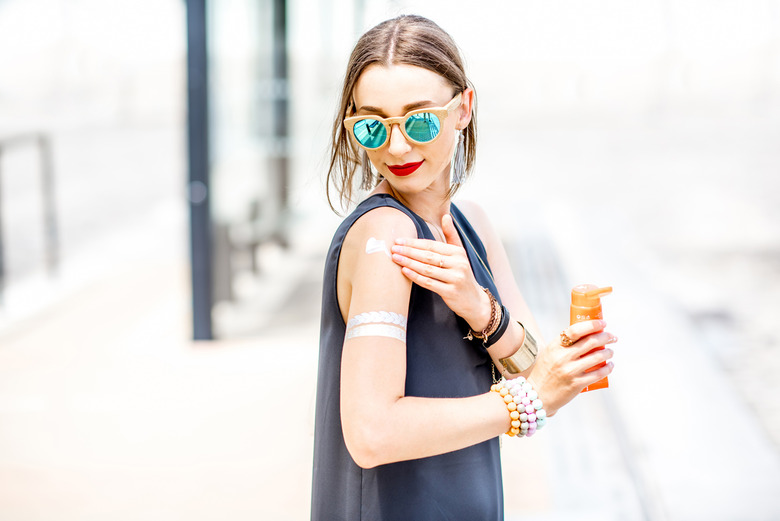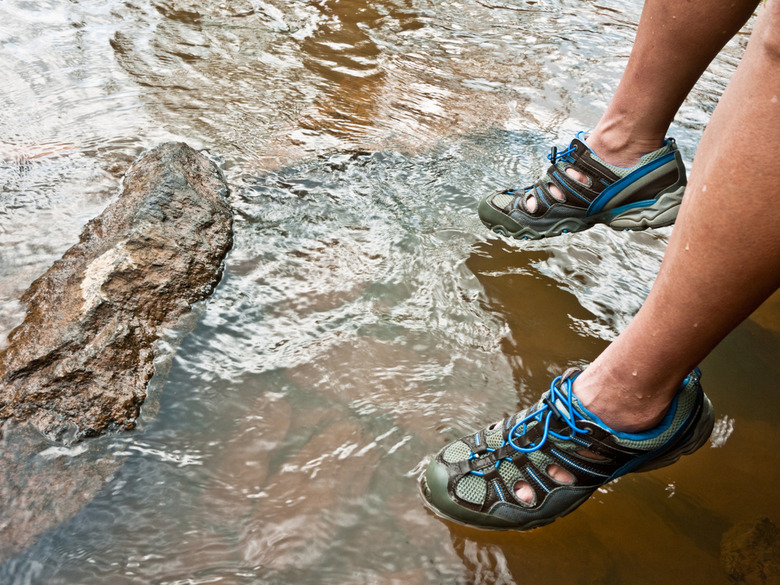50 Essential Summer Safety Tips Gallery
Everybody knows that proper hydration and sunblock are essential during the summer months. But did you know that there are other important times (and places) to practice summer safety? Whether you're prepping food for a picnic, going for a run, or simply walking around town with your pup, unexpected pitfalls can put a damper on the season. Luckily, there are precautions to take before any warm-weather calamities ruin your day, or worse, your long-awaited vacation or that big barbecue you've been planning for weeks.
With increased temperatures and outdoor activities come increased safety concerns. But never fear, because we've got you covered with these handy tips that will keep you happy and out of harm's way all summer long! While your summer won't be any less sweaty, it will be a whole lot safer.
Address Food Allergies
If you're about to serve food at a barbecue and somebody alerts you to a food allergy, simply removing the allergen from the plate will not prevent an allergic reaction. A food can cause an allergic reaction through anything it has touched, whether it is cooking utensils, serving ware, or other foods on the plate, so always be aware of food allergies ahead of time and separate anything that comes into contact with that food. If you're looking to eat out with a friend or family member who has food allergies, check out our list of the top allergy-friendly chain restaurants in America.
Avoid the Sun During Certain Hours
Be mindful of the sun's rays between 10 a.m. and 2 p.m. when they are strongest. It's safest to stay indoors during these hours, but if you do go outside, protect your skin with tightly woven clothing, a hat, and sunblock to avoid sun damage. Have trouble remembering to reapply? Here are the 10 most common times that people forget to wear sunblock.
Be Mindful of Riptides and Strong Currents
Ocean conditions can change quickly, so be prepared when swimming. Pay attention to beach warning signs, and swim only in designated areas. If you do get caught in a rip current, don't panic. Your first instinct may be to attempt to swim back to shore, but don't fight the current. Instead, swim parallel to the shoreline until you get past the current (rip currents are usually no more than 20 to 30 feet wide).
Be Prepared When Eating While Traveling Abroad
Carry your own utensils as a backup, be it chopsticks or travel knives and forks you have packed for your trip. To reduce your chances of picking up a bug while traveling, you can bring sanitizing wipes — one of those 12 travel accessories you didn't know you needed.
Be Timely With Food at Picnics
You may be enjoying yourself at a summer barbecue, but be conscious of how long food has sat out when it's hot outside. The longer that food is exposed to warmer temperatures, the greater the chance that bacteria will grow and cause harm to people consuming the dish. Always be sure to put food away immediately upon returning from the grocery store, and never leave a buffet out for more than an hour when it's sitting at warm temperatures.
Beware of Recreational Water Illness
Avoid swallowing pool water (this sounds gross, but many people do it), and remember to rinse off after swimming in a public pool or anywhere you might have come into contact with contaminated water. Recreational water illnesses include many different types of infections, such as respiratory, gastrointestinal, eye, skin, and ear infections.
Check Your Grill for Leaks
If you have a propane grill, make sure you give it a thorough inspection at the beginning of grilling season. If you're not sure what to do, watch this video on how to check your grill for leaks.
Choose the Right Tools at Your Barbecue
Make sure to always grill with long-handled tools to keep hands and arms as far away from the fire as possible. Here are 10 grilling tools every outdoor cook needs.
Clean Your Grill
Grease and grime can build up in the trays below your grill and contribute to fires. Make sure you know how to give your grill a serious start-of-season cleaning and then keep it clean by scraping the grates and cleaning the trays each time you use it.
Combat Heat Stroke and Sunburn With Cucumber
Because they're composed of 95 percent water, munching on cucumbers can combat the onset of heat stroke and dehydration. The crunchy vegetable has also been known to provide sunburn relief when mashed on the inflamed area of the skin. Try this recipe for grilled salmon with creamy cucumber salad.
Cook Meat to the Right Temperature
You can guess all you'd like, but you'll never be certain that you've cooked your meat to a safe temperature without using a meat thermometer. The temperature varies for different types of meat because some can be more resistant to growing bacteria. According to Foodsafety.gov, here are the safe minimum cooking temperatures:
Chicken or other poultry: 165 degrees
Hamburger meat or ground beef: 160 degrees
Steaks and chops: 145 degrees
Seafood: 145 degrees
Defrost Food Correctly
According to the Food and Drug Administration, frozen food can safely be defrosted in the refrigerator so that the food thaws at a temperature that will prevent bacteria from growing.
Devise an Emergency Plan in Case Someone Gets Lost
Create an emergency plan ahead of time if you're taking the kids to a crowded area, such as the beach or an amusement park. Establish a meeting space that's easy to find, and discuss what to do in case someone gets lost.
Don’t Dive Headfirst
Double-check depths and look for any obstructions before jumping into a pool. To protect your neck, it's always safest to go in feet first.
Don’t Drink and Boat (or Jet Ski)
Everyone knows to not drink and drive, but many people forget that this extends to water activities as well. Operating any vehicle on the water while under the influence of alcohol can be dangerous, so save that beer until you're safely at the dock. Here are some reasons why (though it may be tempting) mixing alcohol, the sun, and water isn't always the best idea.
Don't Mix Cooking Utensils
When working with utensils, make sure you have a designated set for handling uncooked food and another for cooked food. This is often overlooked in the case of summertime grilling, when many are guilty of using the same tongs they started with to remove the cooked meat from the grill.
Double Up on Sun Protection
Use two layers of sunscreen to adequately protect yourself. A layer of chemical sunscreen (such as those containing avobenzone and octinoxate) will absorb the sun's rays and protect against UVA damage. After it's dry, add a layer of physical sunblock (such as titanium dioxide or zinc oxide) to provide a physical barrier to the sun. Did you know that late-night snacking can actually make you more susceptible to sunburn?
Eat Chile Peppers to Keep the Bugs Away
They might make you sweat, but these potent peppers could be your new best friend during the muggy summer months. Chile peppers contain capsaicin, the compound responsible for the spiciness of the pepper, which also acts as an irritant for many species, including mosquitos. After you eat capsaicin, bugs will sense the pepper in your scent and steer clear.
Follow the Locals When Eating at Street Carts
This is Street Food Eating 101: Do as the locals do. Look for the vendors and carts that are bustling with locals. More crowded carts mean a faster turnover, which means much fresher food. Look for families or for local workers in uniforms, like cops and firefighters. Chances are they go where they know they will get a good meal.
Go for Bottled Water
Drinking water straight from the tap (or jug, or even stream) is often not a safe option, whether you're at home or abroad, so it is best to avoid it. When traveling, arrive prepared with water purification tablets and your own water bottle, or buy a bottle of water.
Hydrate, Hydrate, Hydrate
As the mercury rises, so should your hydration level. Our bodies are composed of roughly 60 percent water, and proper hydration is essential to regulate body temperature. Looking for something beyond water to keep your body cool? Here are 10 delicious drinks that are more hydrating than water.
Incorporate Pomegranates Into Meals to Protect Your Skin
Pomegranate seeds are high in ellagic acid, a natural antioxidant, and can help protect your skin by reducing the effects of UVB radiation. These intense rays can cause cell damage and even skin cancer. Looking for some ways to incorporate this fruit into your next picnic? Here are some our best pomegranate recipes.
Keep a Fire Extinguisher Handy
As an extra precaution at a barbecue (or any time), always keep a fire extinguisher easily accessible in case you have an unexpected fire-related emergency.
Keep a Lifeguard in Sight at All Times
Swim where the lifeguard can see you. But how do you know? The general rule is that if you can see the lifeguard, they can see you. The swimming area where a lifeguard is positioned on the beach is chosen for good reason: The water is usually calmer, not too deep, and typically free of riptides.
…But Also Keep Out of Their Way
Quick questions are okay, but don't bother lifeguards with chitchat. They are busy doing head counts and scanning the beach or pool area for signs of distress. They may not appear to be doing much, but they are constantly on alert.
Keep All Flammable Items Away From the Grill
Make sure that any matches and lighter fluid are stored far away from the grill (and out of the reach of children or pets) once the grill is lit. Make sure that other items that could catch fire (like oven mitts or kitchen towels) are a safe distance from the grill as you cook.
Keep Your Pets Safe!
Keep an eye out for your furry friends during the heat of summer, too. Exercise them during the early morning or late evening when it's cooler out, don't leave them in the car for even a short amount of time (heatstroke can occur in less than 15 minutes!), and always ensure that they have access to plenty of fresh water. Want to give your pup a real treat? Here are 15 superfoods you can feed to your amazing dog.
Know (or Learn) How to Swim
Knowing how to swim is a key factor in preventing many water-related accidents. If you or a loved one don't know how, check out your local community and recreation center for lessons this summer. There are often adult sessions available, for those who never learned as children. Once you know how to swim, you can safely enjoy all bodies of water, including the 30 best hotel pools in America!
Know How to Handle Flare-Ups
If you have a charcoal grill, flare-ups can be an issue; they're caused by fat that renders from the food and drips into the fire below. Don't douse flare-ups with water; instead, create two cooking zones on your grill (by piling all the coals to one side of your grill) and move the food to the side of the grill that has no flames when flare-ups happen.
Know When to Put the Knife Down
If you exhibit signs of sickness, whether it's a cough, sore throat, or something as bad as a fever, you should never be handling food, especially food you are planning to serve to others at a picnic or get-together. Even a relatively minor exposure could infect others with your illness.
Learn CPR Basics
Conventional CPR involves alternating between giving the victim chest compressions and breathing into the person's mouth to keep oxygen circulating in the body. The American Heart Association has also devised a hands-only version of CPR for people not properly trained in conventional CPR. Find a list of first aid and CPR training courses at http://www.heart.org.
Look Out for Jellyfish
A jellyfish sting can pack a serious punch, even when the jellyfish is tiny. Apply white vinegar to deactivate the stinger, and use a hot or cold compress to ease the pain. Seek emergency help immediately if the person who's been stung appears to be having a severe or systemic reaction. Check out these foods to help fight sunburns, insect bites, and other summer hazards.
Munch on a Banana If You Do Get Sick
During summertime, food spoils more quickly and bacteria grow more often on kitchen tools and appliances. Once you're afflicted with a foodborne illness, nausea and stomach pain can hit pretty hard. To help ease back into eating, simple carbohydrates (such as the ones in bananas) are a good call.
Never Leave the Grill or Fire Pit Unattended
Leave any area that contains open flames under the supervision of a responsible adult at all times. Even if you're just running into the kitchen to grab another bottle of barbecue sauce, ask someone to keep an eye on the fire and nearby people or pets.
Put Your Grill in a Safe Location
Propane and charcoal grills should only be used outdoors. Be sure to place them well away from your home, deck railings, and overhanging branches. As a general rule, keep the grill at least five feet or more from anything that could catch fire.
Remain Aware on the Road
Summer weather is an opportunity to do everything outdoors that we are forced to do inside during the remainder of the year. When running or exercising outdoors, remain aware of your surroundings. You may love running while listening to music, but the noise and distraction can make you less aware of potential dangers such as uneven terrain, approaching cars or pedestrians, or dogs on leashes. If you can't give up your music, try taking one ear bud out, or lower the volume a bit.
Restrict Access to the Grill
We all know to keep kids and pets away from the grill, but adults can cause grilling-related accidents too, especially if alcohol is involved. Keep the number of people that are gathered around the grill to a minimum and stay alert, always watching for loose hair or clothing that could accidentally catch fire.
Rinse Your Cutting Board
Another overlooked summer food safety step is knowing when to wash your cutting board. As with a knife, always wash and sanitize your cutting board after handling bacteria-friendly raw foods. It's also helpful to use plastic cutting boards (as opposed to wooden cutting boards) when working with raw foods such as beef, poultry, or seafood, because the bacteria from the raw food can more easily be washed away.
Separate Raw and Ready-to-Eat Food When Heading to a Potluck or Picnic
Make sure to pack ready-to-eat food and raw food in different containers so that there is no cross-contamination during travel.
Soothe Heat Rash With Oatmeal
This soothing ingredient is used in many skincare products, and with good reason. The compounds in oatmeal relieve many types of skin discomfort, including itch from heat rash or bug bites and pain from sunburns.
Stay Away From the Pier
When swimming, keep at least 100 feet away from any pier or jetty. Natural rip currents form around these structures and can be extremely dangerous.
Store Food Properly in the Refrigerator
This is one of the less obvious ones, but the National Restaurant Association warns that storing raw food such as meat, seafood, and poultry over ready-to-eat foods in the refrigerator, like shown in the photo above, can cause cross-contamination due to the raw food leaking and dripping onto the ready-to-eat food below.
Switch Run or Workout Times
If you normally exercise outdoors, try a run in the early morning or late evening. The rewards include cooler temperatures, less humidity, fewer cyclists on paths, and less traffic on roads. Need to fuel up before you hit the pavement? Avoid eating these 20 foods before a workout.
Transport Food at the Right Temperature
Many people think that a cooler will do its job all on its own, but whenever transporting food, raw or cooked, make sure it's stored at a temperature below 41 degrees. That may mean you need to have ice packs ready if you're taking a long journey!
Use Aloe Vera Inside and Out
Yes, aloe is not just a remedy but also a food! It can be used in juices and smoothies to keep you hydrated, and the soothing compound can be applied directly on sunburns for instant relief. It can even be incorporated into a margarita!
Wash Your Hands After Handling Raw Meat
Just because you washed your hands before starting does not mean you're in the clear. Make sure to wash your hands after handling any raw foods.
Wear a Bike Helmet
Buy a properly fitted bike helmet and wear it low on your forehead (approximately two finger widths above the eyebrows). Choose one that has a CPSC sticker, which means that it meets standards set by the U.S. Consumer Product Safety Commission.
Wear a Life Vest
Even if you know how to swim, if you are zipping around the lake in a speedboat or out on open waters on a sailboat, it's not a bad idea to wear a life vest as a precaution. Children and adults who aren't strong swimmers should always wear one.
Wear Enough Sunscreen
Protect yourself from sunburn like the pros: Apply at least a shot glass' worth of sunblock, and apply it before getting dressed. It's easy to miss spots when you're trying to work around your clothes.
Wear Proper Beach Shoes
Wear comfortable and supportive shoes while beachcombing and climbing slippery rocks. Proper shoes can protect your feet from hot sand and the sharp objects hidden within, like jagged shells, glass, and trash. Wearing proper gear not only makes your day at the beach more comfortable, but can help you avoid some of the 25 biggest summer health hazards.
More from The Daily Meal:
The Best New Ice Cream Flavors for Summer 2018
The Healthiest and Unhealthiest Summer Food Favorites
The Foods to Eat This Summer for Shiny Hair
Summer Traditions From Around the World That Americans Should Adopt
